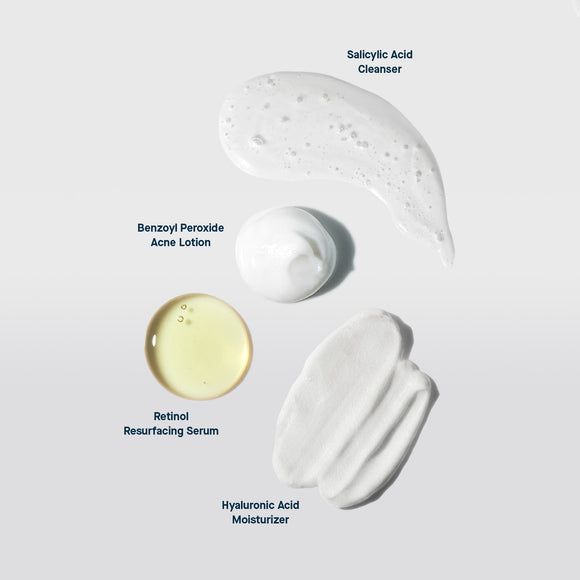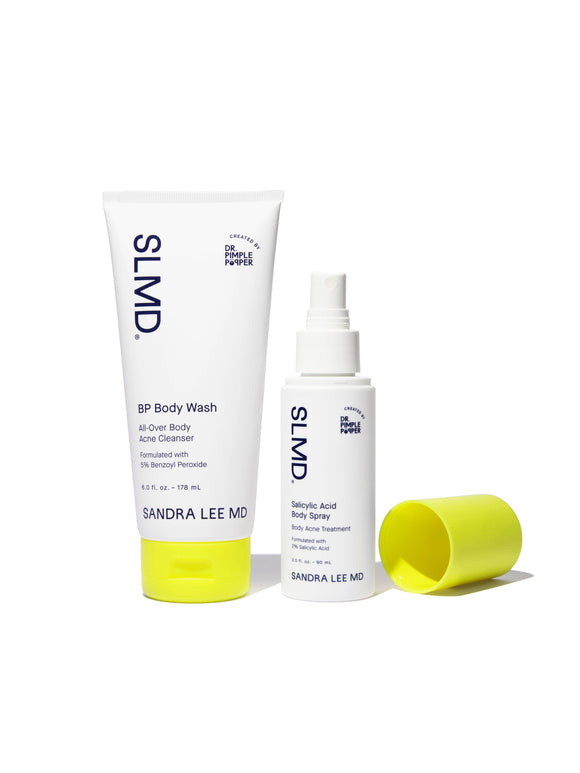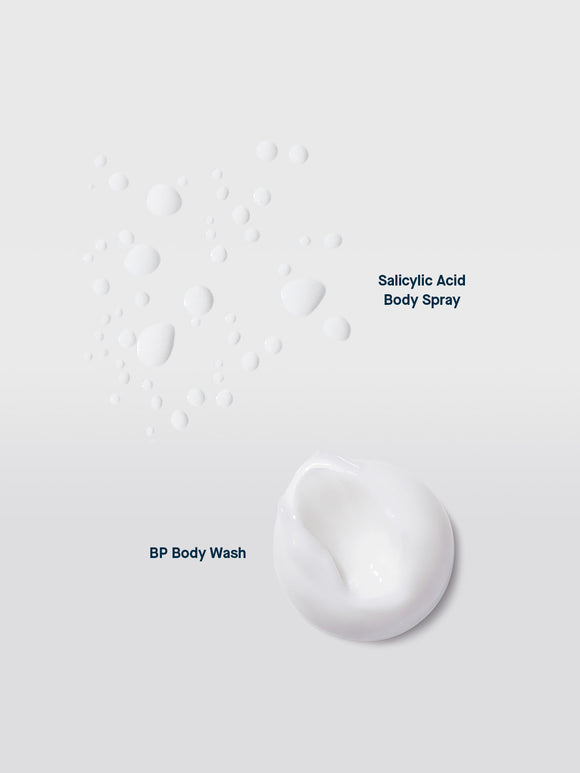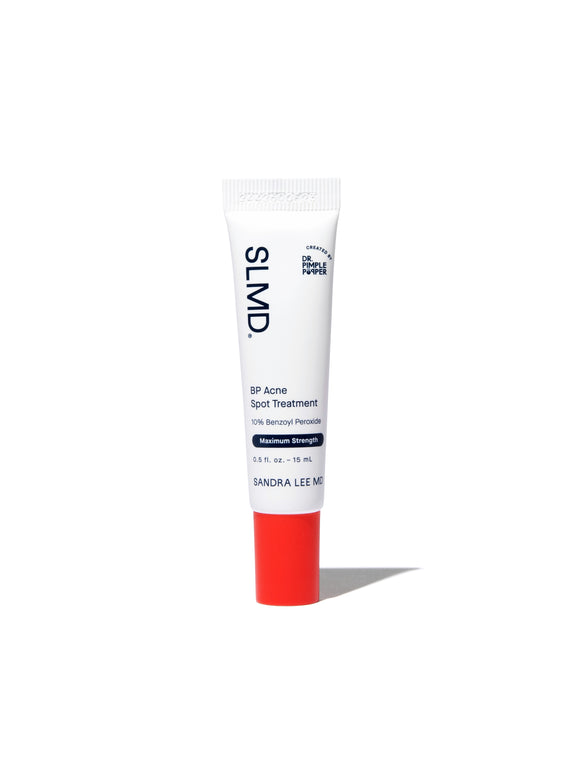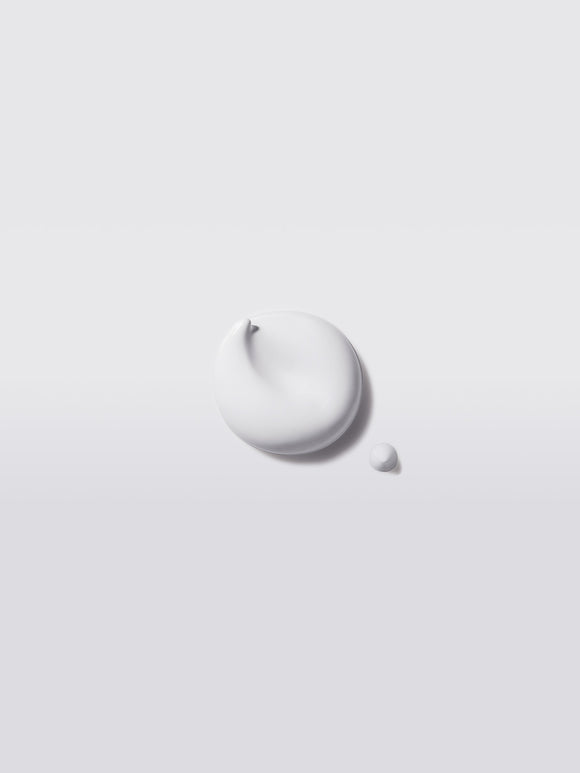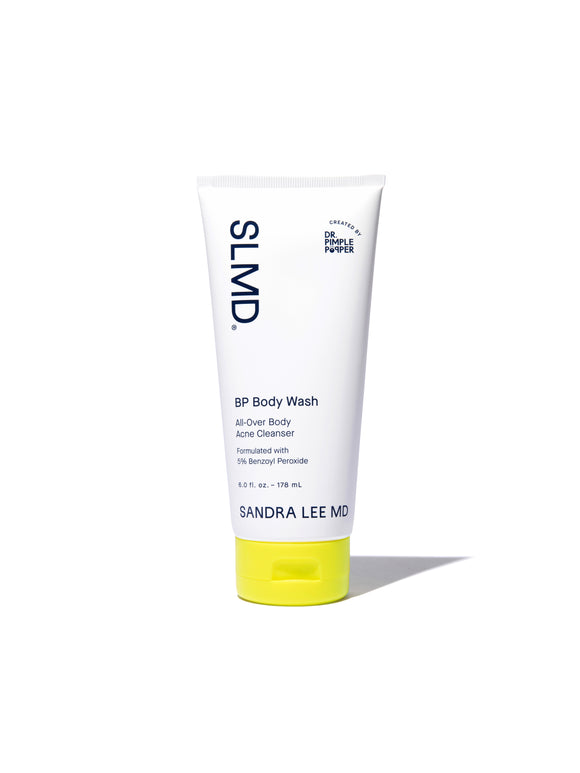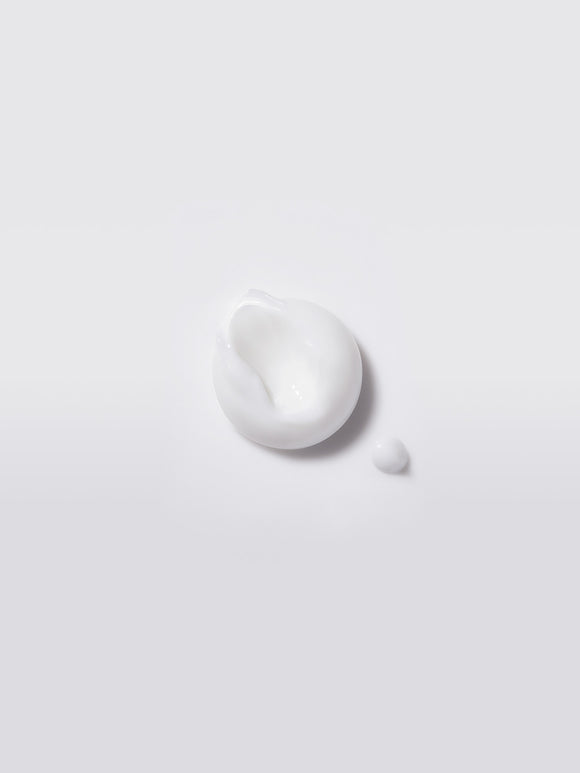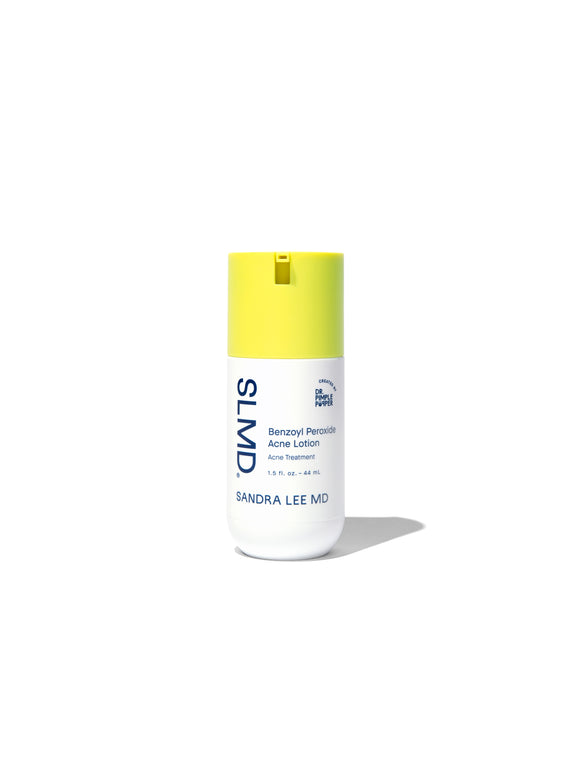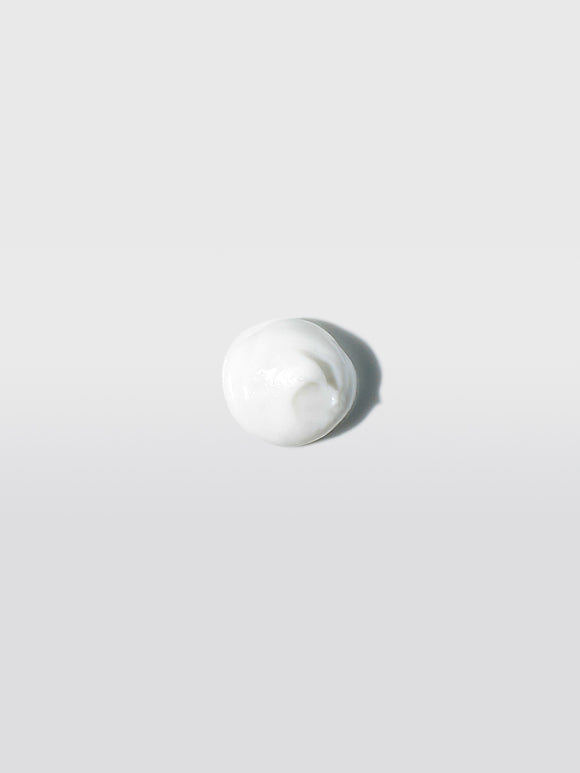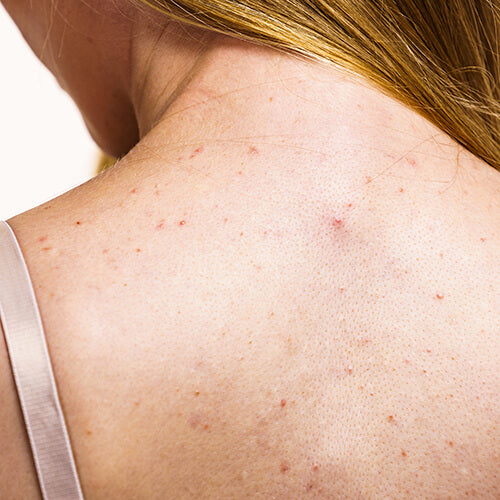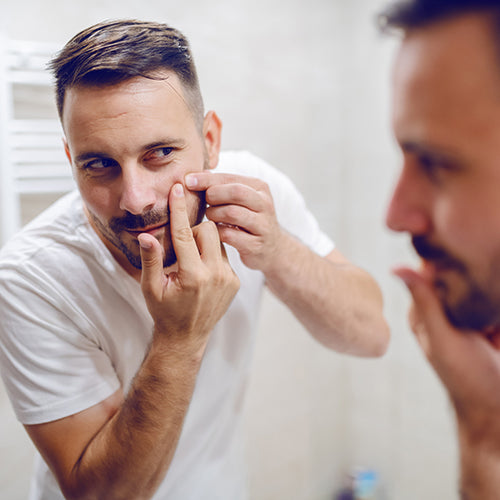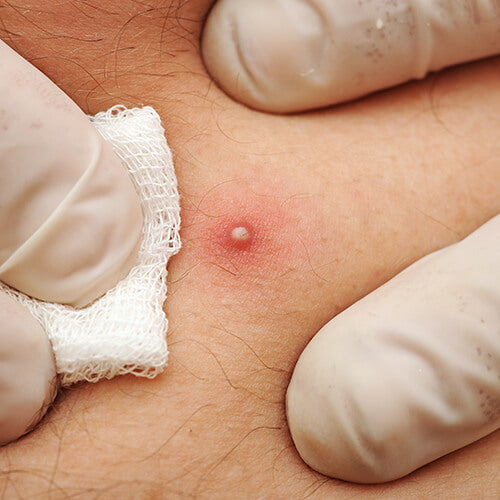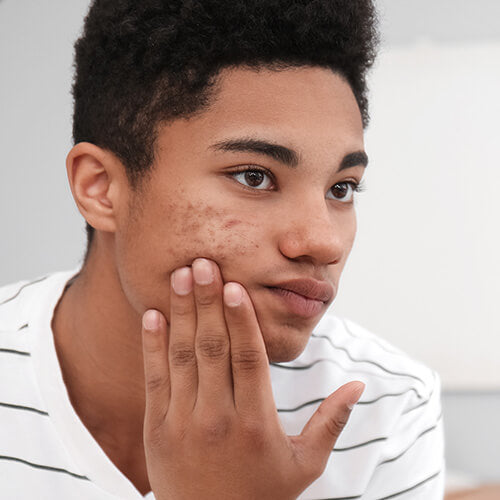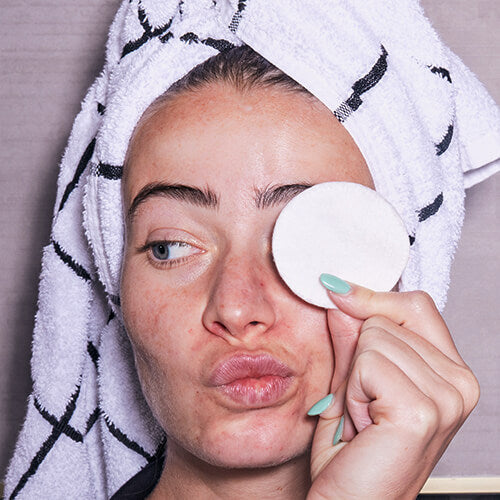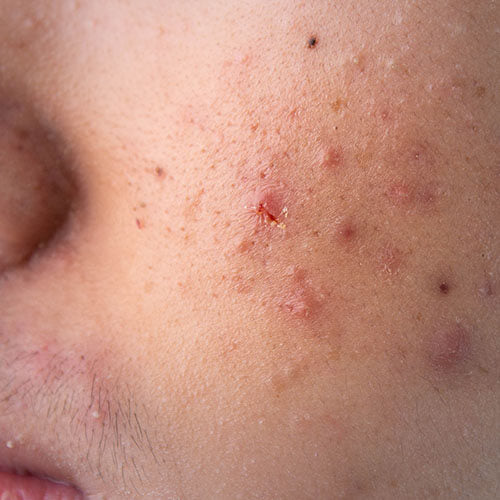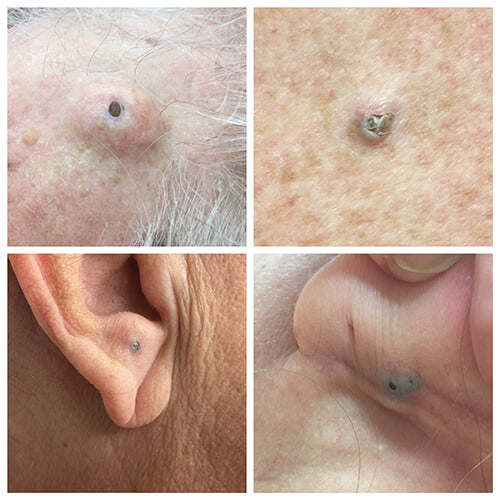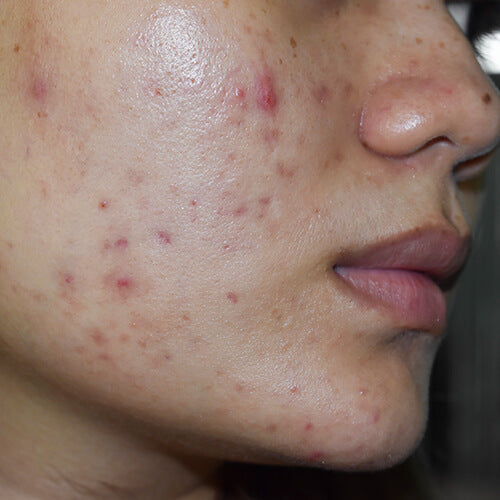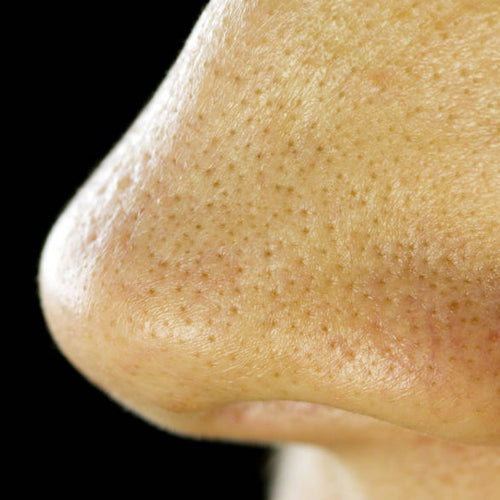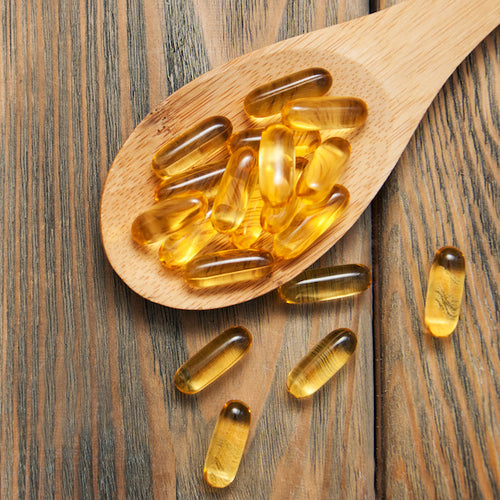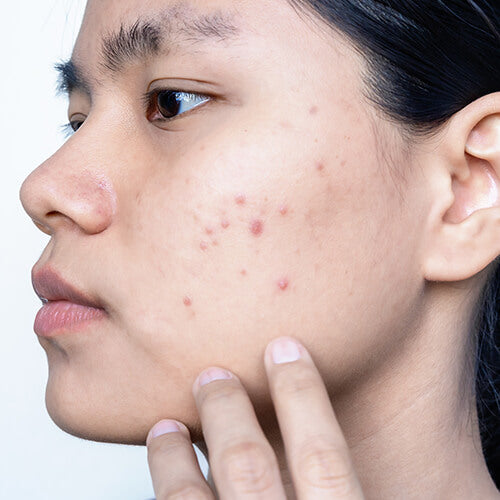
Benzoyl Peroxide vs. Sulfur: Which Is Better for Treating Acne?
Benzoyl peroxide and sulfur are two ingredients that dermatologists have relied upon for decades to effectively treat acne, including inflammatory pimples. So how do you decide which one is right for your particular skin? Here, we break down the difference between benzoyl peroxide and sulfur for treating acne.
Published:
3 minute read
There are a handful of over-the-counter ingredients that dermatologists have relied upon for decades to effectively treat acne. Benzoyl peroxide and sulfur are two top choices for dealing with inflammatory pimples: the deep, red, often painful breakouts that can be challenging to get rid of.
These anti-acne actives have a lot in common — so how do you decide which one is right for your particular skin? Here, we break down the difference between benzoyl peroxide and sulfur.
Article Quick Links
How does benzoyl peroxide treat acne?
The skin benefits of benzoyl peroxide were first discovered over 150 years ago, and in the 1920s, a chemist at Revlon began experimenting with it as an acne treatment. Since then, many clinical studies have demonstrated the benefits of benzoyl peroxide for acne, due to several of its properties:
- Anti-bacterial: kills acne-causing bacteria and other microbes both on the surface of the skin and within the hair follicles
- Keratolytic: softens keratin and dissolves the desmosomes (the filaments that help bind skin cells together)
- Anti-inflammatory: calms the body’s immune response to clogged and infected pores
- Reduces sebum: studies suggest that the sebum excretion rate (SER) decreases in some patients after applying benzoyl peroxide
What are the side effects of benzoyl peroxide?
Numerous studies have shown that benzoyl peroxide is safe when used as directed — though some side effects are common, including:
- Dryness
- Erythema (redness)
- Peeling
- Photosensitivity
- Bleaching (clothing and hair)
Who should use benzoyl peroxide?
Along with retinoids, benzoyl peroxide is considered a highly effective treatment for mild to moderate acne, particularly inflammatory papules, pustules, nodules and cysts. In cases of more severe acne, it’s often prescribed by dermatologists in conjunction with topical antibiotics. Three OTC products from SLMD Skincare to try:
- Benzoyl Peroxide Acne Lotion: helps control inflammatory pimples, part of the 3-step Acne System
- BP Acne Spot Treatment: a maximum-strength targeted solution for inflammatory pimples
- BP Body Wash: part of the award-winning Body Acne System, treats body breakouts
Studies have shown that very little benzoyl peroxide is absorbed by the body when it’s applied topically, but there haven’t been a lot of studies to determine its effects on children, or pregnant women. It’s best to consult with a doctor in these cases.
Though it typically only causes mild irritation, an estimated 1 in 500 people have a benzoyl peroxide allergy. Interestingly, this sometimes overlaps with cinnamon allergy, due to the fact that the two contain similar compounds.
How does sulfur treat acne?
A naturally occurring, non-metallic element, sulfur (aka brimstone!) has been used for millennia to treat various skin conditions. It’s essential for many functions, and is a common building block of amino acids.
Ancient civilizations around the world knew the benefits of soaking in soothing sulfur baths, said to alleviate a variety of skin ailments — including acne. Modern research has revealed the element’s many acne-fighting qualities, including:
- Antimicrobial
- Reduces sebum
- Keratolytic
- Antioxidant: helps neutralize skin-damaging free radicals
- Anti-inflammatory
What are the side effects of sulfur?
One of the reasons sulfur is so commonly used is that it is nearly universally tolerated, with very few side effects when used as directed. Rarely — and most often associated with overuse — topical sulfur can cause:
- Irritation
- Peeling
- Erythema (redness)
Who should use sulfur?
Because it is so gentle, sulfur is an ideal choice for anyone with acne-prone and sensitive skin. The mineral is typically effective for treating cases of mild to moderate acne, including inflammatory breakouts. It’s also useful in treatment masks, as it helps smooth and control oil without overdrying. Two products from SLMD Skincare to try:
- Sulfur Lotion: part of the Sensitive Skin Acne System, helps manage acne without irritating skin
- Clear Out: an award-winning purifying mask that also contains salicylic acid and zinc oxide
Research indicates that sulfur has a very low absorption rate when applied topically. Most experts agree that it’s safe to use if you’re pregnant or nursing, but always consult your doctor first.
It’s virtually impossible to be allergic to elemental sulfur, as it’s essential for human life. However, different compounds containing sulfur, as well as ingredients found in sulfur-based formulas, may cause irritation or allergic reactions in some people.

Dr. Lee's Last Word
Two of the most potent active ingredients we have for treating acne are benzoyl peroxide and sulfur. Dermatologists have been using these for at least a hundred years to inhibit the growth of bacteria, exfoliate, and help calm red, irritated skin. Together with retinol and moisturizer, they’re the building blocks of my SLMD Skincare acne systems.




